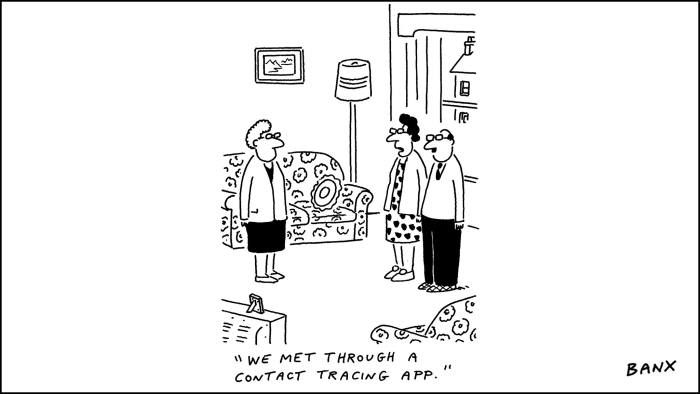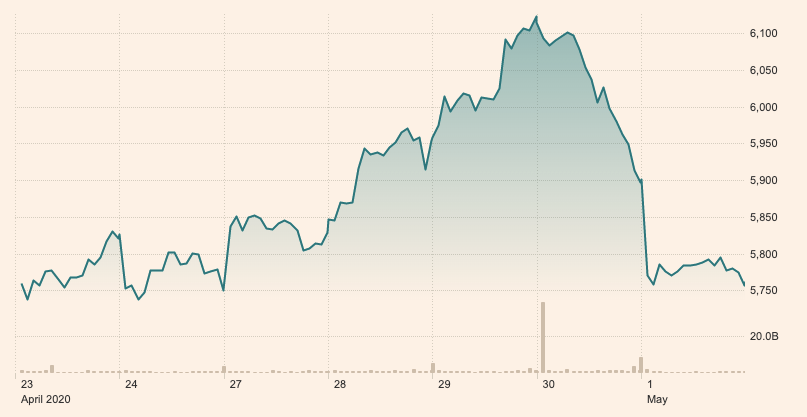- Charlotte Street Partners

- May 4, 2020
- 5 min read
Bookcase credibility
Written by Scarlett Regan, Researcher
Edited by Harriet Moll, Creative Director
Good morning,
My coping mechanism throughout these last few weeks has been to read books. Not e-books: I’m talking printed, published editions which sit nicely on bookshelves. From Tara Westover’s fascinating memoir Educated, to Sebastian Faulks’ historical fiction Charlotte Gray, I’ve found myself immersed, evenings and weekends, losing myself in the words and befriending the characters. Books have offered me some much-needed escapism; moments to forget that I’m not living the crazy life I should be at age 23. Moments to escape, to travel, to transcend.
The book industry has been adapting fast to the new way of life. A few weeks ago, I watched the winners of the International Booker Prize being announced online. Independent bookshops continue to promote new titles in a bid to reinforce the importance of their personal service, grateful but perhaps sceptical of Amazon’s recent £250,000 donation to a bookshops fund.
Authors have launched their books online, virtual tours via Instagram and podcasts have replaced thousands of miles of air travel, and more bookshops have created subscription schemes. The book industry has been busy futureproofing itself, in a way that would have taken years to do without Covid-19.
But the urge for books to be part of our lockdown journey isn’t just coming from the retailers. “What have you been reading?” seems to be a frequently asked question on our family WhatsApp chat, and book clubs across the UK including our own Charlotte Street Partners incarnation have emerged, wine glass in hand, on Zoom of course. In the last week, a new fascination for people’s bookshelves has taken off, taking the form of a Twitter account: ‘Bookcase Credibility’ (worth a look if you haven’t yet discovered it).
Books have helped me to maintain a modicum of lockdown sanity. There is something very soothing, both for the mind and the eyes, in taking a break from screens and immersing oneself in the stability of the printed page.
Whilst under lockdown, I have only left the family home for runs, walks, and trips to the nearby shop, but thanks to books I have also seen many worlds, made friends with countless strangers, and learned a few things. Above all, books are gateways to places free of global pandemics. And anyway, reading that book on your shelf that you’ve been meaning to pick up might even make your ‘bookcase credibility’ that bit more credible.
News
Possible post-lockdown workplace rules have been exposed in a draft government plan. Reduced hot-desking, alternatives to social distancing, staggered shift times and maximised home-working are some of the measures being considered. The prime minister Boris Johnson is due to reveal his “roadmap” out of lockdown this Sunday.
In a jointly signed open letter, European leaders have pledged support for a plan to raise €7.5bn to find a coronavirus vaccine. An online pledging conference will take place today, co-hosted by the UK, Canada, France, Germany, Italy, Japan, Norway, Saudi Arabia and the European Commission. Boris Johnson will confirm the UK’s pledge of £388m for vaccine research, and will urge countries to “pull together”. (£)
Anew drug developed by UK scientists to treat coronavirus patients is being trialled at University Hospital Southampton. The drug has been developed by UK bio-tech firm Synairgen, and it uses the protein interferon beta, which our bodies produce when we get a viral infection. Initial results from the trial are expected by the end of June.
Business and economy
Companies preparing to get back to work have been ramping up orders for kit to protect workers, such as masks and face visors. There have also been large orders placed for plastic sheeting to divide office desks and serve as shields for staff in shops and restaurants. Manufacturers are struggling to meet the demand. (£)
Senior figures in the City of London have urged the government to proceed with caution in easing the lockdown, stressing that the reopening should be gradual. The consensus among more than 50 senior figures representing firms such as Mastercard and BT, was that the government needs to prioritise the health needs of the nation.
The UK’s coronavirus testing and tracing app will be trialled on the Isle of Wight this week, will a full rollout expected later this month. People with the app will be able to alert others they have been in contact with that they have symptoms, and will be able to request a test. The app is being created by NHSX and is being considered a key part of the UK’s exit strategy.
Columns of note
In The Times, James Kirkup argues that the economy needs to move out of London. He says that the flaws of a model based around big cities are clear, and that ministers should look to the regions for a new, greener Britain. He says that our “national crash course in video-conferencing” will persuade some businesses that their workers can permanently work from home. He says the hubbub in and around London won’t be nearly as strong at the end of this crisis. (£)
In The Guardian, the former universities minister Chris Skidmore argues that if universities shift online, we risk more poorer students dropping out. Universities must introduce extra financial and pastoral support to look after their remote students, he says. It will be hard work, he admits, but he has no doubt that universities will be able to adapt to our new pandemic world.

Source: The Financial Times
Markets
What's happening this week?
The Bank of England will meet on Thursday, to set policy for tackling the economic effects of the coronavirus. There are no further rate cuts expected, but quantitative easing might be discussed.
A clearer picture of the damage done to the economy will be revealed by the announcement of US job figures: non-farm payrolls, unemployment rate, and initial jobless claims. A number of earnings will be reported this week, including ITV, BT, InterContinental Hotels, Walt Disney, Total, Air France, ArcelorMittal, Nomura and more. This should give us a clearer picture about the effects of the virus on the automotive, aviation, entertainment and investment sectors.
The European Commission will disclose the extent to which it predicts coronavirus will have hit GDP growth, inflation, unemployment and public debt for the EU countries for 2020 and 2021. Germany’s constitutional court will publish its verdict on whether the European Central Bank’s bond-buying programme can deviate from the capital key.
The lockdown in Italy continues to ease, as factories and building sites reopen today. More businesses will be allowed to open in following weeks. Although there is still conflict over the easing of restrictions, many Italians want to get back to earning a full salary and getting the economy going again, after being in Europe’s longest lockdown.
What's happening today?
AGMs
Honye Fin.serv.
Rightmove
EGMs
Matomy Media
Annual Report
Tanfield
Int. Economic Announcements
(08:55) PMI Manufacturing (GER)
(09:00) PMI Manufacturing (EU)
(15:00) Factory Orders (US)

Did you know?
Singing in a choir raises your pain threshold.
Parliamentary highlights
House of Commons
Oral Questions
Business, Energy and Industrial Strategy
Oral Questions
Cabinet Office
Oral Questions
Chancellor of the Duchy of Lancaster and the Minster for the Cabinet Office
Ministerial Statement
Covid-19: update from the Department for Work and Pensions – Dr Thérèse Coffey
Motion
To approve a Statutory Instrument relating to the Health Protection (Coronavirus, Restrictions) (England) Regulations 2020 and the Health Protection (Coronavirus, Restrictions) (England) (Amendment) Regulations 2020 - Matt Hancock
Motion
To approve a Statutory Instrument relating to the Draft Automatic Enrolment (Offshore Employment) (Amendment) Order 2020 and Draft Occupational And Personal Pension Schemes (Automatic Enrolment) (Amendment) Regulations 2020 - Guy Opperman
House of Lords
No business scheduled
Scottish Parliament
No business scheduled

Comments